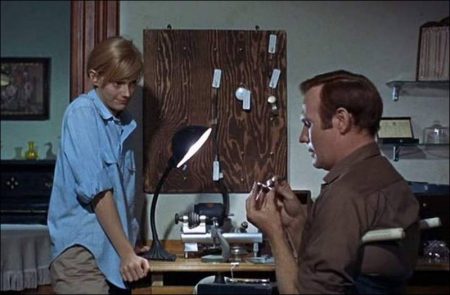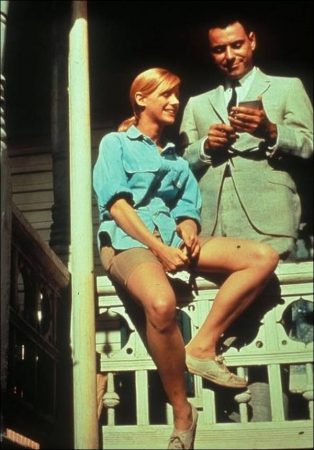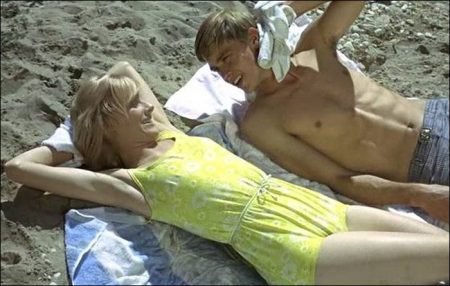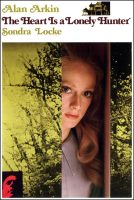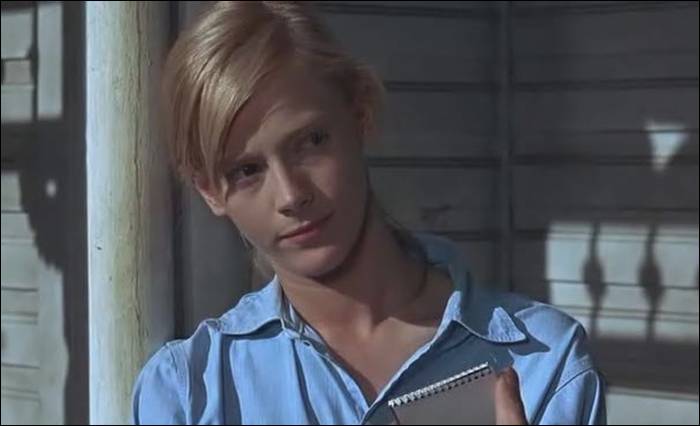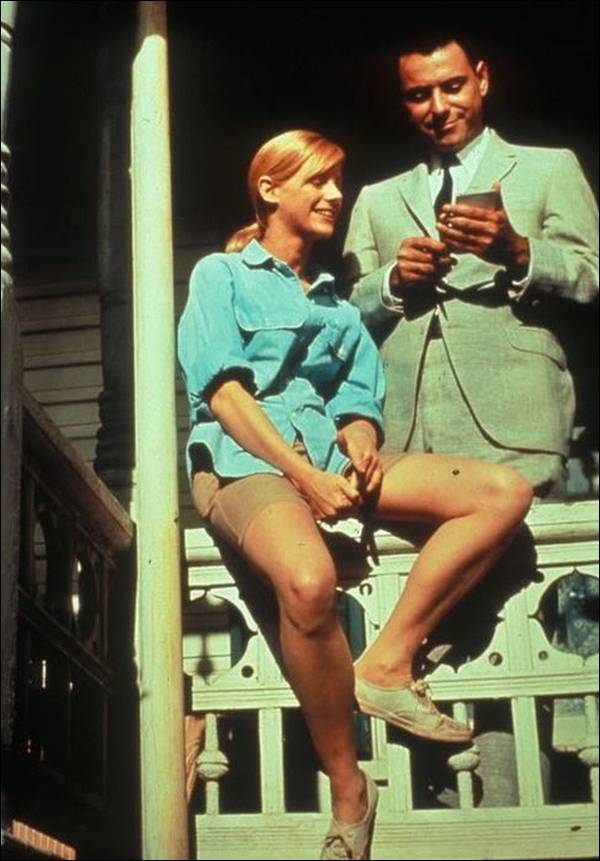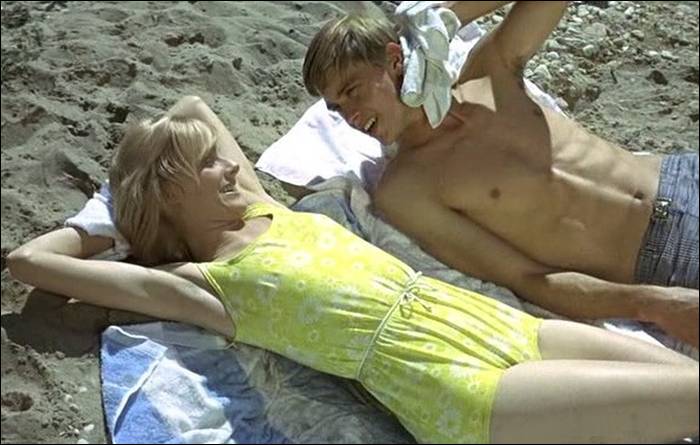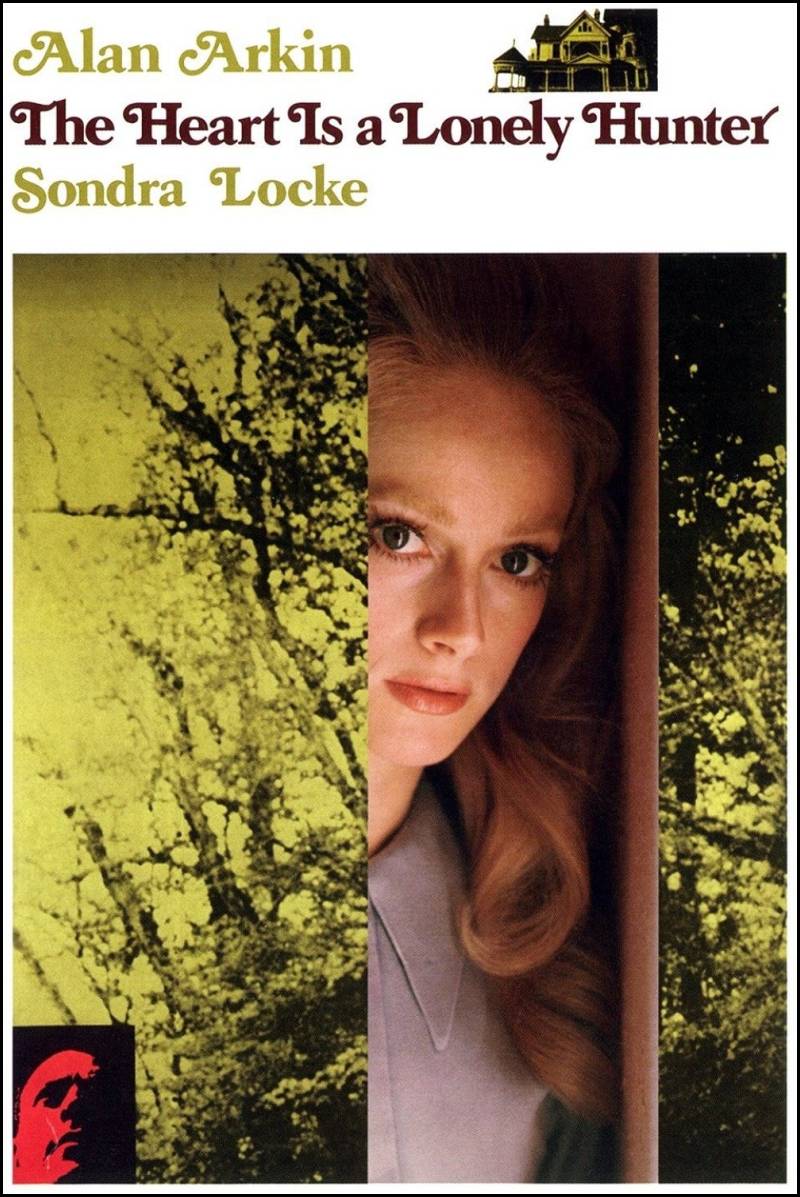Taglines: …and from this man who could not speak or hear, the girl heard many things.
The Heart Is a Lonely Hunter movie storyline. Sentimental story centers around a deaf-mute, Singer, and Mick, a teenager who lives in the house where he rents a room. Mick and Singer become friends, though they are separated by Singer’s lack of communication ability and Mick’s struggle with teenage problems. The lives of the people Singer touches are varied, linked only by their friendship with Singer. His friends include a deaf-mute, a drunk, and a doctor. Singer does his best to help those around him solve their problems, but who is there to help him solve his own?
The Heart Is a Lonely Hunter is a 1968 American film adaptation of the 1940 novel of the same name by Carson McCullers. It was directed by Robert Ellis Miller. It stars Alan Arkin and introduced Sondra Locke, who both earned Academy Award nominations for their performances. The film updates the novel’s small-town Southern setting from the Depression era to the contemporary 1960s. The film is recognized by the American Film Institute in AFI’s 100 Years of Film Scores – Nominated.
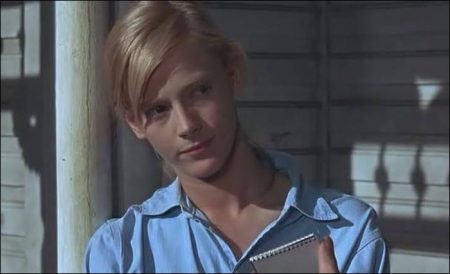
Film Review for The Heart is a Lonely Hunter
The 1968 film version of The Heart is a Lonely Hunter, based on the 1940 novel by Carson McCullers, aimed for a faithful adaption. Though it had its merits, the film got mixed reviews. Strong performances, especially by Alan Arkin as Singer and Sondra Locke as Mick (her film debut) earned them both Academy Award and Golden Globe nominations — for Best Actor and Best Supporting Actress, respectively. The film received numerous other nominations and awards, and was generally favorably reviewed.
Still, the film fails to capture the sweep and emotional impact of the book, so I’d recommend reading it before considering the film. Here’s a review that was published when the film premiered in 1968:
From the review by Frank Daley of The Heart is a Lonely Hunter, from the Ottawa Journal, Friday, October 4, 1968: The film stars Alan Arkin and Sondra Locke, based on the novel by Carson McCullers. Directed by Robert Ellis Miller.
Coming out of the theatre, someone said: “That movie had more tragedies than Gone With the Wind.” Not quite, but there are certainly a great many examples of human suffering in this film treatment of Carson McCullers’ 1940 book.
Alan Arkin as Singer
Alan Arkin plays a deaf-mute named Singer in a small southern town. He has moved there so that he could be near another deaf-mute who is in the hospital. The film is a rambling story of how John Singer meets the Kelly family with whom he boards as well as several other respected and not-so-respected members of the community.
Singer is desperately alone in his silent world and as he makes his way during his time in the town he touches many people’s lives momentarily and always for the better, but he never succeeds in establishing enough rapport with anyone so that then can help him when he needs solace.
Colorful characters
First he encounters Stacy Keach as a drinking drifter (a good performance by this off-Broadway player), then he gets a room at the Kellys. Biff McGuire plays the father who is unable to find work because of a hip injury.
Sondra Locke is the young daughter who hurriedly learns what it means to be slightly more mature than her classmates, to experience the first foray into sexual love and to be forced out to work when her father cannot.
Miss Locke is often effective as she happily discovers Mozart and as her friendship with Singer grows. But she is too self-conscious, too wrought up in her own problems to notice his.
A sub-plot pits Percy Rodrigues as a black doctor against his own daughter (Cicely Tyson) in a contrived personal and prejudicial question of little dramatic substance.
A sentimentalized screenplay
The screenplay is often maudlin and much too concerned with small happenings that bear little relation to each other. We are invited to join the Kellys to look in on the race issue, then join Singer and one of his troubled people for a time, and finally watch Singer with his hospitalized friend. It becomes too disjointed.
Much of what we see is sentimentalized and it is the more so since we never see enough of the characters nor do their problems seem less than remote because of the constant cutting from one group to another.
Alan Arkin displays a marvelous sense for the quiet moment; he is particularly adept at indicating the loneliness of a man unwilling and unable to shout to the people he is helping that he needs help more than they. Sometimes Arkin uses mannerisms that seem too restricted for the character. Because a man cannot speak must he be impoverished in action?
Direction by Robert Ellis Miller is never quite tight enough; there is always a flaccid feeling to the scenes and this combined wit the speciousness of some of the scenes involving the peripheral characters makes The Heart is a Lonely Hunter a weaker film dramatically than it might have been.
The Heart Is a Lonely Hunter (1968)
Directed by: Robert Ellis Miller
Starring: Alan Arkin, Sondra Locke, Chuck McCann, Peter Mamakos, John O’Leary, Biff McGuire, Jackie Marlowe, Laurinda Barrett, Robbie Barnes, Wayne Smith, Richard Fingar, Sherri Vise
Screenplay by: Thomas C. Ryan
Cinematography by: James Wong Howe
Film Editing by: John F. Burnett
Costume Design by: Albert Wolsky
Set Decoration by: Phil Abramson, George James Hopkins
Art Direction by: LeRoy Deane
Music by: Dave Grusin
MPAA Rating: None.
Distributed by: Warner Bros. Pictures, Seven Arts
Release Date: July 31, 1968
Views: 274
